APA’s Academic Consortium Heads Up Capitol Hill
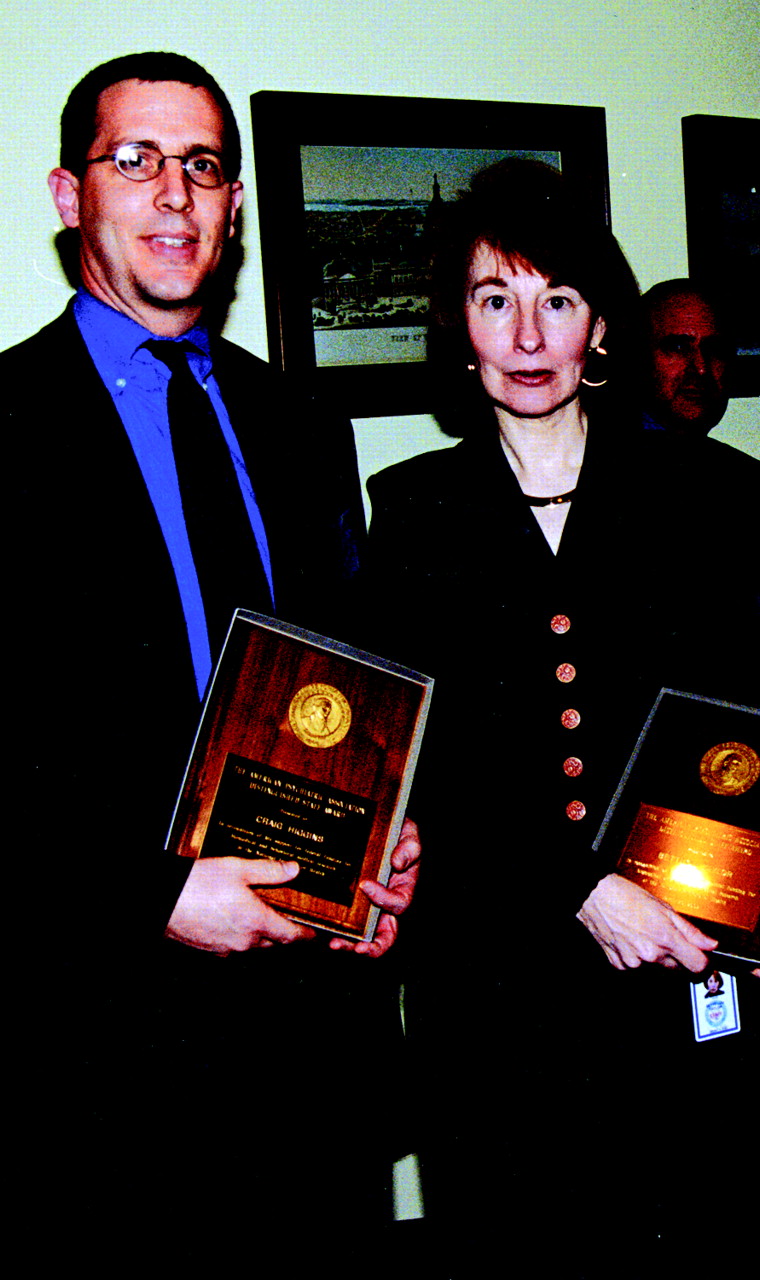
Key congressional appropriations committee staffers Craig Higgins and Bettilou Taylor hold their Distinguished Staff Awards from APA “for supporting biomedical and behavioral research funding at NIH.” Ellen Murray, not pictured here, also received the Distinguished Staff Award.
About 40 professors and chairs of academic psychiatry departments; directors of Veterans Affairs Medical Illness Research, Education, and Clinical Centers; and patient advocates went to Capitol Hill last month to urge Congress to increase federal funding for psychiatric and addictions research.
The message of the Academic Consortium was that the institutes that make up the National Institutes of Health, such as the National Institute of Mental Health, should receive the same increases as NIH in Fiscal 2003.
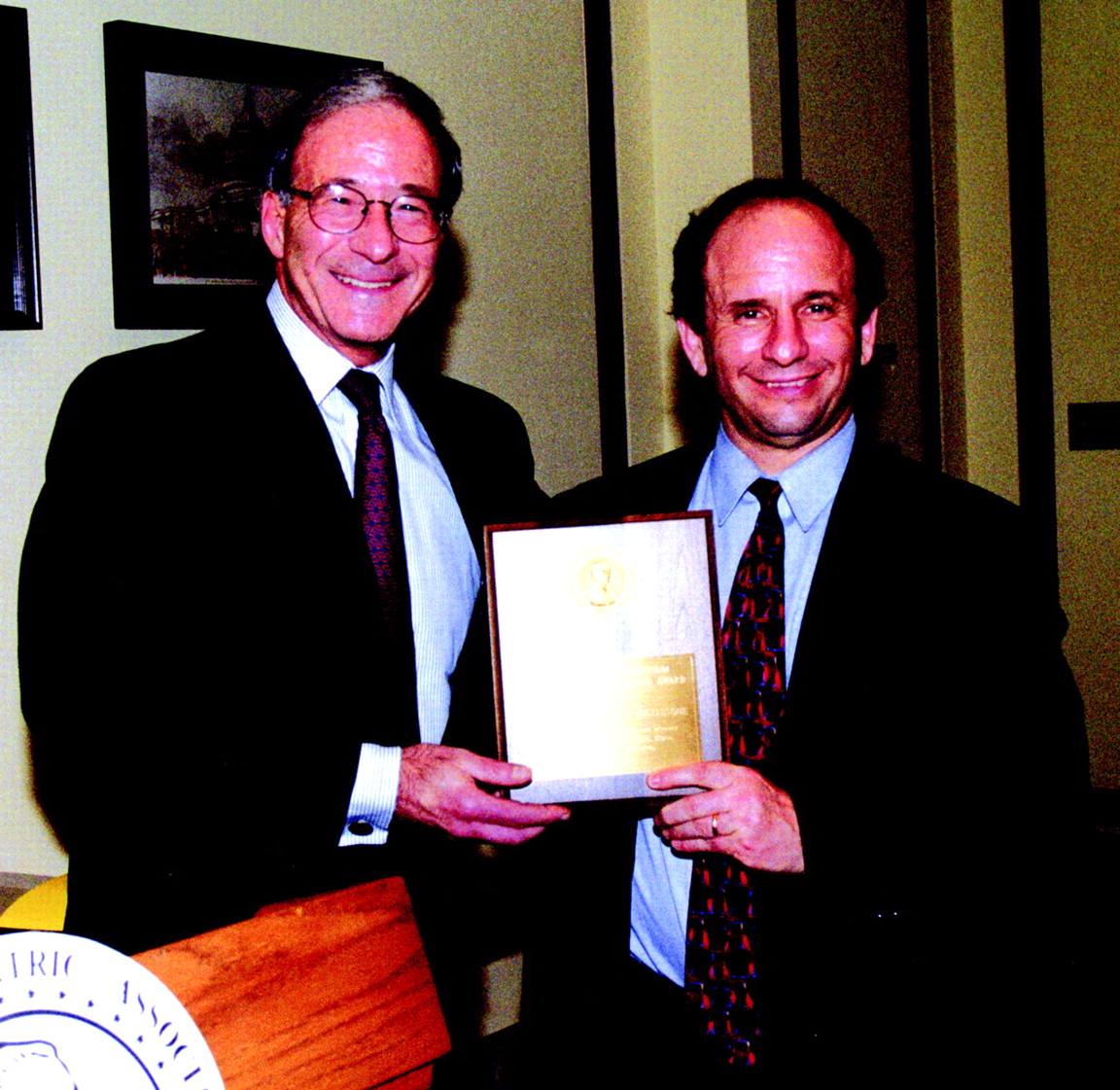
Sen. Paul Wellstone (D-Minn.) (right) receives the Academic Consortium Distinguished Legislator Award for “his tireless advocacy on behalf of people with mental illness and addictions” from consortium cochair David Kupfer, M.D.
The Academic Consortium, cochaired by Lewis Judd, M.D., and David Kupfer, M.D., also focused attention on the parity legislation reintroduced in the House last month (see Original article: page 16) and increasing the Veterans Affairs biomedical research budget in Fiscal 2003. (APA Medical Director Steven Mirin, M.D., is scheduled to testify on the VA budget this month.)
The trek to Capitol Hill was one highlight of the consortium’s two-day activities. Before going to Capitol Hill, participants were briefed by APA staff and had another opportunity to meet with members of Congress and their aides at a reception that evening.
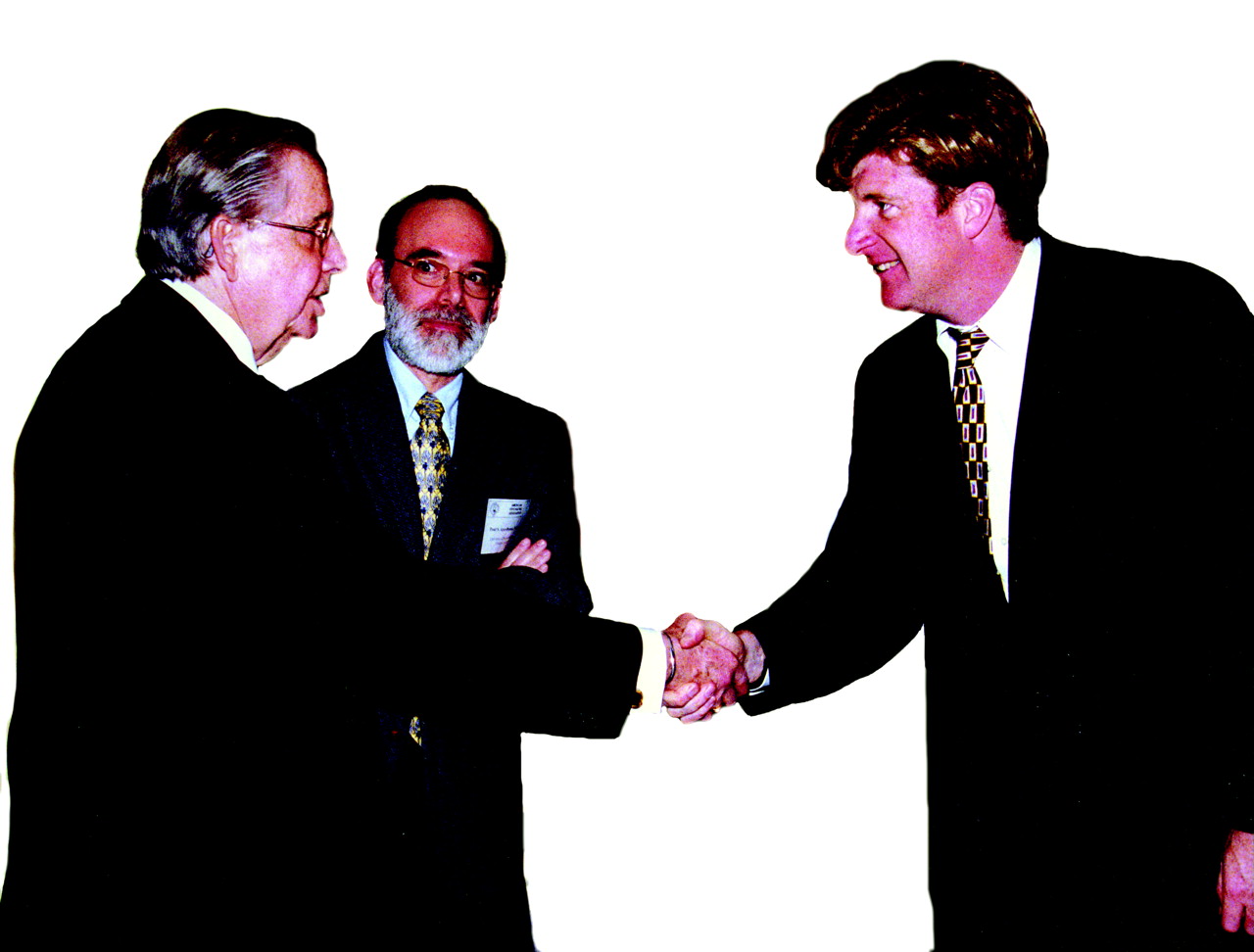
Rep. Patrick Kennedy (D-R.I.) (right) greets Academic Consortium cochair Lewis Judd, M.D., while APA President-elect Paul Appelbaum, M.D., looks on.
President Bush proposed in his Fiscal 2003 budget to Congress in February that NIH receive an increase of nearly 16 percent, which would double the 1998 funding level (Psychiatric News, March 1).
APA supports that $3.7 billion increase in the NIH budget, but is concerned about the approximately $490 million in proposed set-asides and transfers for nonresearch activities, according to Lizbet Boroughs, associate director of APA’s Division of Government Relations.
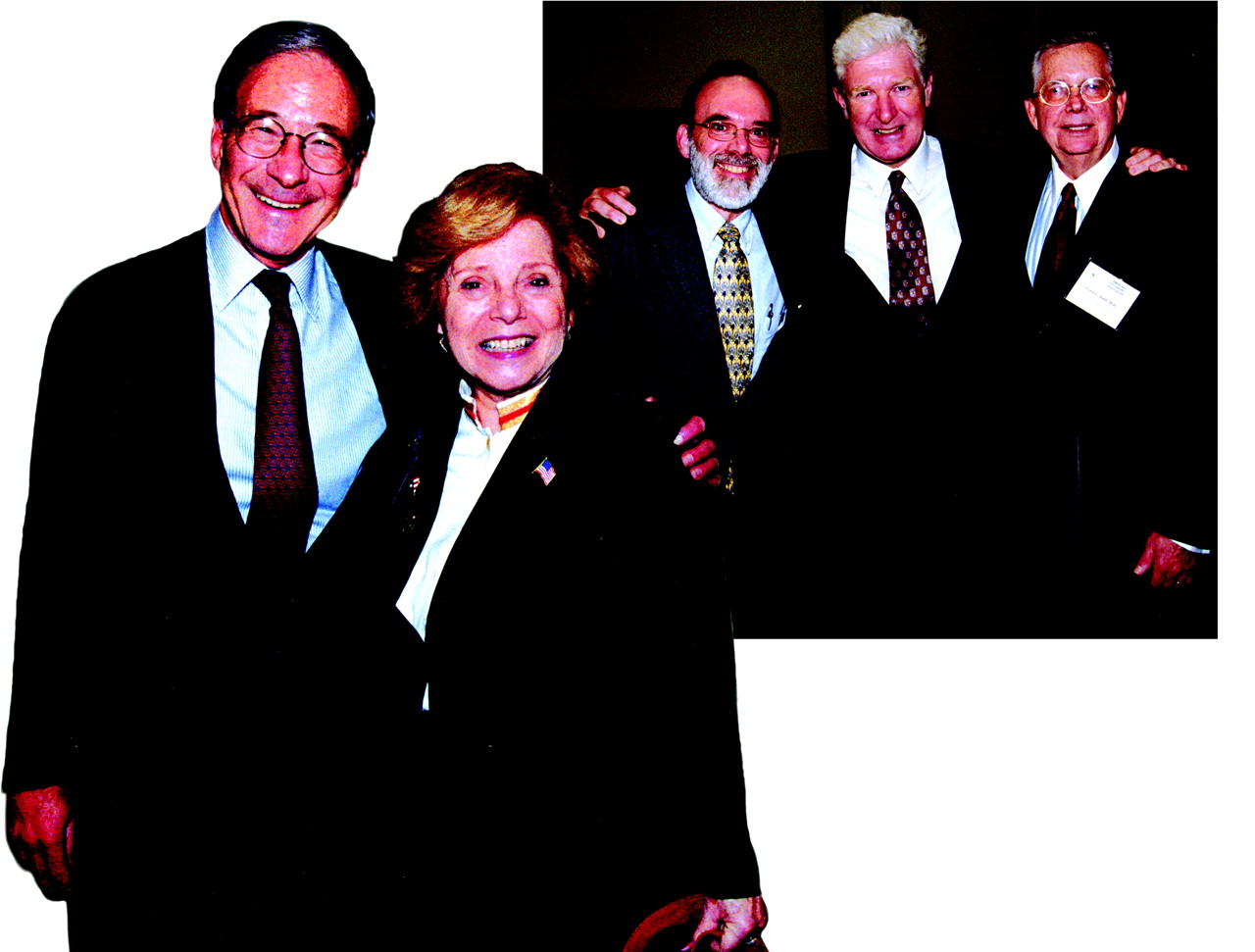
Rep. Marge Roukema (R-N.J.) shares a light moment with consortium cochair David Kupfer, M.D.
Rep. James Moran (D-Va.) (center) enjoys the spotlight with APA President-elect Paul Appelbaum, M.D., and consortium cochair Lewis Judd, M.D.
Another concern is that Bush has proposed approximately 16 percent increases for some institutes in Fiscal 2003, such as the National Cancer Institute, but only between 8 percent and 9 percent increases for the National Institute of Mental Health, National Institute on Drug Abuse, and National Institute on Alcoholism and Alcohol Abuse.
“This is the first year that the president’s budget has departed from the pattern of giving all the institutes the same increases as the NIH,” said Judd at the consortium’s meeting at APA headquarters.
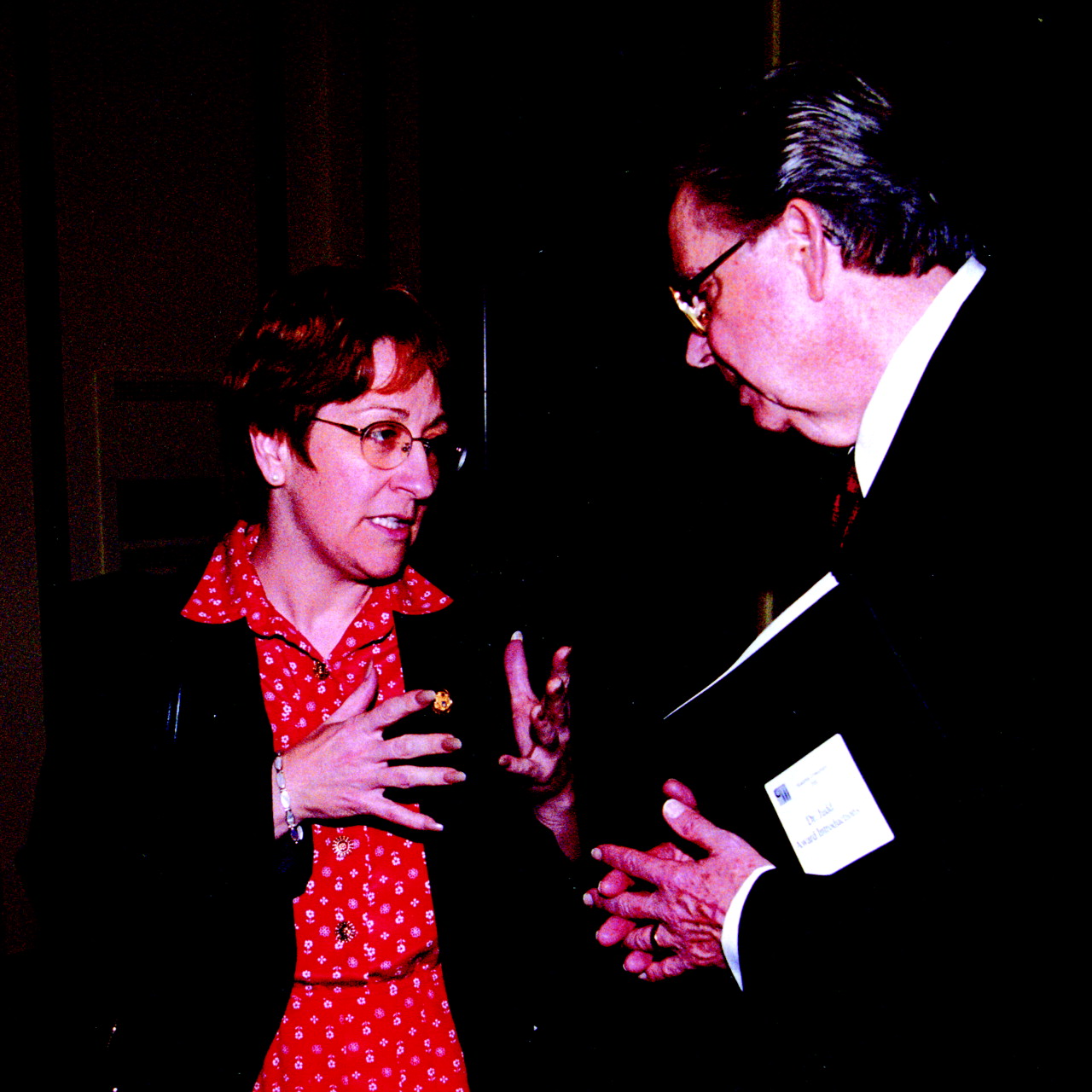
Rep. Lynn Rivers (D-Mich.) chats with consortium cochair Lewis Judd, M.D., at the reception.
At the reception that evening, which was held in the House Rayburn Building on Capitol Hill, the consortium presented awards to a number of people (see photos). Not pictured are Sen. Tom Harkin (D-Iowa), who later received the APA Doubling Award for his “outstanding legislative leadership to achieve the doubling of the federal funding for NIH,” and Acting NIH Director Ruth Kirschstein, M.D., who later received the Academic Consortium Distinguished Service Award for “her lifelong commitment to biomedical and behavioral research at the NIH.” ▪



